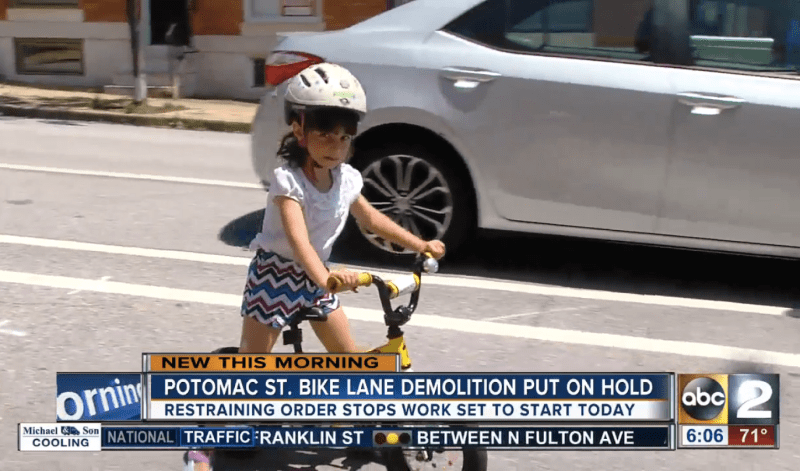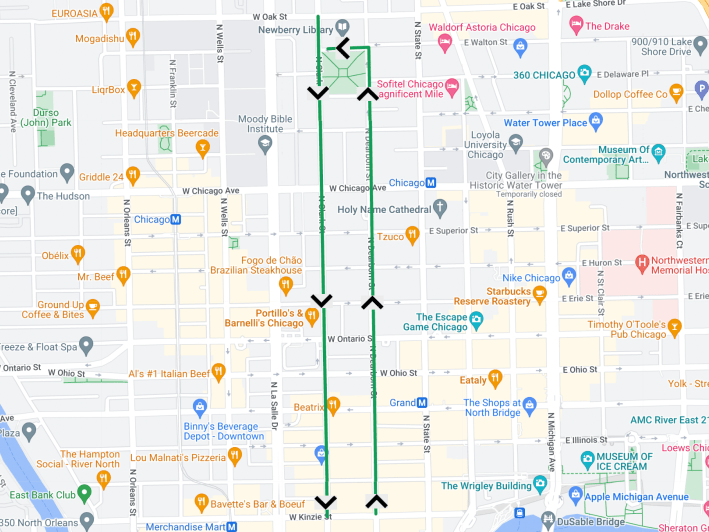Barely six months after taking office, Baltimore Mayor Catherine Pugh has, in a matter of weeks, made a name for herself as the mayor who rips out protected bike lanes.
The Pugh administration had been installing a protected bike lane on Potomac Street that was years in the making when, last month, she halted construction as the project neared completion. Bike advocates, the local councilman, and the neighborhood association all backed the bike lane, but Pugh bowed to a group of anti-bike lane NIMBYs who seized upon a suburban-style fire code technicality that until then hadn't been an issue for Baltimore's narrow streets.
Instead of standing up for street safety, the Pugh administration released a new design concept that created extra-wide lanes for fire trucks. The new design sacrificed the bike lane's quality while keeping parking in place, resulting in wide lanes that encourage drivers to speed and double park, while sticking bike riders with space that is either too narrow or, on some blocks, unprotected from car traffic.
But watering down the bike lane wasn't enough for the Pugh administration, which has changed its position yet again by deciding to remove it completely. James T. Smith, Jr., chief of strategic alliances for Mayor Pugh and former secretary of the Maryland Department of Transportation, said in a letter last week that the city will tear out the bike lane and "restart the infrastructure design process."
The city has already spent $775,000 designing and installing the bike lane, which had been included in city planning documents for the past five years. The project received federal funds distributed by the state and met design guidelines set by the Federal Highway Administration and the National Association of City Transportation Officials before Pugh decided to cave to its detractors.
Now, neighborhood bike lane backers, with the support of bike advocacy group Bikemore, have sued to stop the city from removing the bike lane, arguing that the administration's decisions have been "arbitrary and capricious." On Friday, Baltimore City circuit court judge Althea M. Handy, finding "immediate, substantial and irreparable harm," granted a temporary restraining order preventing the city from removing the bike lane.
Bikemore issued a statement about why it decided to go to court:
Bikemore and the plaintiffs in this case believed the decision to demolish the Potomac Street Protected Bike Lane to be arbitrary and not in the best interest of Baltimore residents. After three weeks of engaging in meetings with Baltimore City officials a decision was made that jeopardizes significant federal transportation dollars and puts at peril plans to build a safe, comfortable network of separated bike facilities city wide. Realizing that all other avenues of advocacy had been exhausted including the nearly 1,000 emails and phone calls by Baltimore City residents urging the Mayor to reconsider this decision, we did what advocates do -- hold those tasked with representing us accountable.
A spokesperson for the Baltimore City transportation department had no comment.





